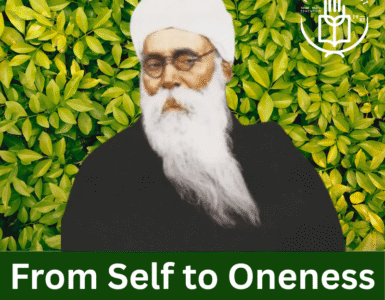A brief historical context
Sant Baba Iqbal Singh Ji had retired as Director of Agriculture from Himachal Pradesh in 1986 and thereafter started a small school with 5 students as envisaged by his predecessors Sant Attar Singh ji and Sant Teja Singh ji, (MA LLB AM Harvard.)
The Fountainhead today has progressed into a chain of 129 rural schools and 2 private universities, along with a host of social development programs.
We fondly recall him on this Environment day, when he was honoured by a Lifetime Achievement Award by The National Institute of Cleanliness Education Research (NICER) for his mammoth contributions.
The ‘Clean to Clan’ initiative
‘Clean to Clan’ to Babaji was everything that can turn a life around, starting from cleaning the environment, sustaining the outer environment as clean as ever, and extending this to the inner selves of people for a painstakingly clean society. Comprehensive cleanliness is a mandate given to us by Babaji that each one of us should follow: education, gender equality, women’s empowerment, and a soul free from intoxicants. All these, when practiced together, result in a society free from evil and keep society strong by default to wade away from nefarious designs.
A deeper meaning with Cleanliness of the Mind
According to Sant Baba Iqbal Singh Ji,
Cleanliness of Environment should be preceded by Cleanliness of the Mind, of the five vices.
Pavan paani dharati aakas ghar mandar har bani,
i.e. Air, water earth, and sky, are God’s home and temple—sacred places which need to be protected and looked after.”
Clean to Clan thus becomes the foundation of all of Babaji’s work. The comprehensiveness of this mandate works two ways: self to society, and society to self; where the outside surroundings add to totality.
The Initiative in practice
While education, empowerment, and gender equality brought about cleaning in society on the one hand and added to the general conscience to keep cleanliness in the surroundings,
At the community Village Level
This is well exhibited in the village of Lana Bhalta, District Sirmaur, Himachal Pradesh. For the uninitiated, ‘Lana Bhalta’ was the winner of the Swachh Mission award of Rs. 10 lakhs in Himachal Pradesh amongst 3243 Gram Panchayats. Here, there are toilets in each household, a localized system to sift waste from water flowing out of every kitchen into soak pits, and no scrap of garbage or filthy water.
Each household in the village has been given a sanitation kit that includes a toilet brush, a jute bag for collecting garbage, a dustpan, a dust bin, and a nail cutter. The five anganwadis in the panchayat have toilets with special seats for children. Almost all items from the garbage bins are recycled. Raddi (wasted paper) is recycled into paper and stale, oily’ food into manure. Oil-free waste like raw vegetables and left-over food find their way into the vermicompost pit. Nothing is left unused. Waste from building materials such as stones, bricks, and rubble is used for construction, while glass, tin, shoes, clothes, and toys are sold to trash buyers. Toxic waste is burned in incinerators, while the entire garbage is made bacteria-free. This model is fortified further through grass-roots awareness and education to inculcate clean and healthy habits.
At the Academies
All the Akal Academies are shouldering their responsibility towards nature & contributing their bit through tree plantation drives, which are conducted each year in all academies. The motto of these drives is to educate students about the importance of the environment and follow the principle of “Clean Earth, Green Earth.”
A 1.7 MWp Capacity Solar Power Plant has been installed in Akal Academies and Universities. This plant generates 22 lakh units of energy annually and helps reduce more than 40,000 MT of carbon emissions.
The Sewage Treatment plant at Baru Sahib is removing contaminants from wastewater, primarily from household domestic sewage. It includes physical, chemical, and biological processes to remove these contaminants and produce environmentally safely treated effluent.
Education is the key
A comprehensive Education is the turning point of the clan to be clean. This keeps society free from gender inequality, empowered, progressive, and clean.
















“ ਜੇ ਕੋ ਬਚਨੁ ਕਮਾਵੈ ਸੰਤਨ ਕਾ ਸੋ ਗੁਰ ਪਰਸਾਦੀ ਤਰੀਐ ॥੧॥ ਰਹਾਉ॥ “
“ one who practices the teachings of the saints, by Guru’s Grace, is carried across.॥1॥ pause ॥”
(Above written gurbaani of Dhan Shri Guru Granth Sahib ji maharaj).